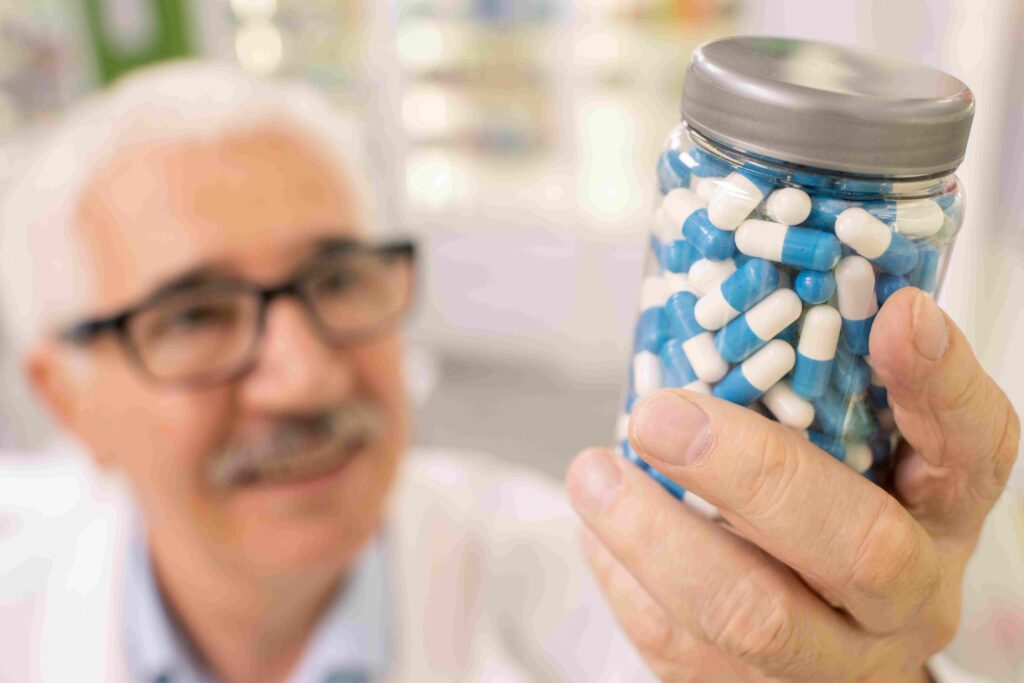
November 3, 2023
Uncategorized
Substance use disorders have a profound impact on individuals and communities, often shrouded in misconceptions and stigma. At Life Line Services, we are dedicated to shedding light on the science of addiction and providing effective treatment options. We will delve into the complexities of substance use disorders, explore the neurobiology of addiction, discuss factors contributing to addiction, highlight the benefits of Medication Assisted Treatment (MAT), and offer a comprehensive approach to recovery. Join us as we unravel the science behind addiction and discover the path to healing and recovery.
Substance use disorders, commonly known as addiction, refer to a chronic condition characterized by the compulsive use of substances despite negative consequences. These substances can range from alcohol and prescription medications to illicit drugs. Substance use disorders impact millions of individuals worldwide, with devastating effects on their physical, mental, and social well-being. Recognizing the signs and symptoms of addiction is crucial in promoting early intervention and effective treatment.
Addiction is a complex interplay between genetics, environmental factors, and changes in the brain’s reward system. When substances are consumed, they trigger the release of dopamine, a neurotransmitter associated with pleasure and reward. Over time, the brain adapts to the presence of the substance, leading to tolerance and the need for higher doses to achieve the same effect. Withdrawal symptoms may occur when the substance is discontinued, reinforcing the cycle of addiction.
Substance use disorders are influenced by a combination of genetic predisposition, environmental and social factors, and co-occurring mental health disorders. Family history of addiction can increase the risk, while factors such as peer pressure, trauma, and stressful environments play a significant role in the development of addiction. Understanding these contributing factors allows for a more comprehensive approach to treatment.
MAT combines medications with counseling and behavioral therapies to treat substance use disorders. Medications such as methadone, buprenorphine, and naltrexone are used to manage cravings, alleviate withdrawal symptoms, and prevent relapse. MAT has been shown to improve treatment outcomes, reduce overdose rates, and enhance the overall quality of life for individuals in recovery. It is important to address misconceptions surrounding MAT and highlight its effectiveness as a crucial component of comprehensive addiction treatment.
Effective addiction treatment requires a comprehensive approach that addresses the physical, psychological, and social aspects of addiction. Personalized treatment plans tailored to individual needs, evidence-based therapies like cognitive-behavioral therapy (CBT) and motivational interviewing (MI), and holistic approaches such as mindfulness, exercise, and nutrition are essential in promoting long-term recovery. Supportive services and resources for patients and their families further contribute to successful outcomes.

Despite seeing a loved one struggle, family members can and ideally do play a major role in the treatment process.



Stigma surrounding addiction can hinder individuals from seeking help and accessing appropriate treatment. By addressing misconceptions and promoting empathy, we can create a supportive environment that encourages individuals to seek assistance without fear of judgment. Education, community engagement, and advocacy efforts are vital in breaking down the barriers of stigma and fostering a compassionate society.
Real-life success stories provide inspiration and hope for individuals struggling with addiction. At Life Line Services, we have witnessed countless individuals reclaim their lives through our treatment programs. Personal testimonials and narratives highlight the transformative journey of recovery, showcasing the resilience and strength of those who have overcome addiction. These stories serve as a beacon of hope for others on the path to recovery.
Recovery is a lifelong journey, and ongoing support is crucial for sustained sobriety. Aftercare programs, relapse prevention strategies, and continuing care initiatives play a vital role in helping individuals navigate the challenges of recovery. Rebuilding relationships, restoring career prospects, and addressing legal issues are integral components of supporting the recovery journey and empowering individuals to lead fulfilling lives free from substance use.
Addiction is a complex and multifaceted condition that requires a comprehensive and compassionate approach to treatment. By understanding the science behind addiction, promoting evidence-based practices like Medication Assisted Treatment, and overcoming stigma, we can transform lives and build a healthier, more supportive society. At Life Line Services, we are committed to providing effective and personalized care to individuals on their journey to recovery.
Addiction is not a simple matter of choice. It is a complex disease that involves changes in brain chemistry and neural pathways, impacting an individual’s ability to control their substance use. Genetic, environmental, and social factors also play a significant role in the development of addiction.
No, MAT is not simply substituting one addiction for another. The medications used in MAT help stabilize brain chemistry, manage cravings, and reduce withdrawal symptoms, enabling individuals to focus on their recovery. MAT is a medically supervised and evidence-based treatment approach that has been proven effective in supporting long-term recovery.
MAT does not hinder your chances of achieving sobriety. In fact, it can significantly improve treatment outcomes by reducing cravings, preventing relapse, and allowing individuals to engage more effectively in counseling and therapy. MAT is a valuable tool that supports individuals in their recovery journey.
While addiction cannot be cured, it can be effectively managed with the right treatment, support, and lifestyle changes. Recovery is a lifelong process that requires ongoing commitment, but with comprehensive treatment and support, individuals can lead fulfilling lives in recovery.
Supporting a loved one struggling with addiction involves offering empathy, understanding, and encouragement. Encourage them to seek professional help, provide information about treatment options, and be supportive throughout their recovery journey. Remember to take care of your own well-being as well by seeking support for yourself.
Post Tags :
Recent Posts






Explore
Copyright © 2025 Life Line Services. All Rights Reserved.
Fueled By Antilles Digital Media